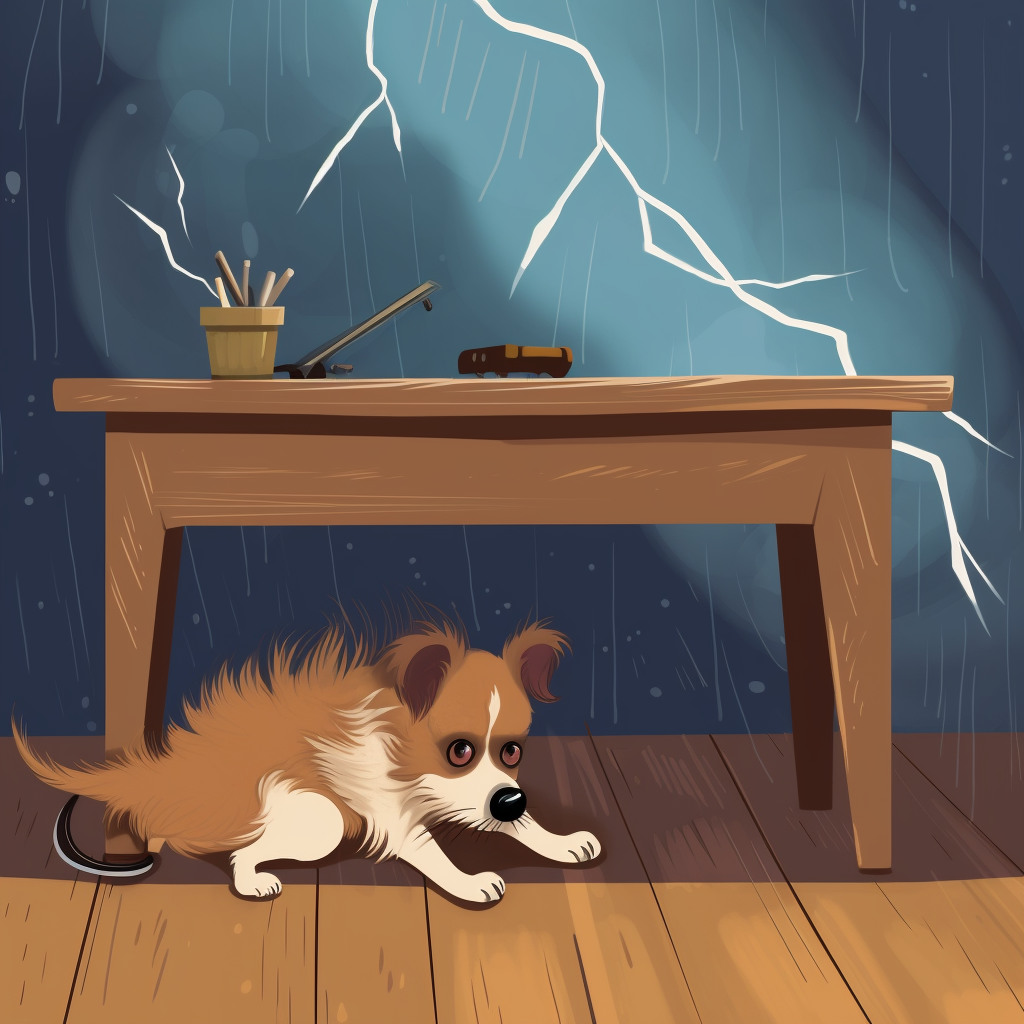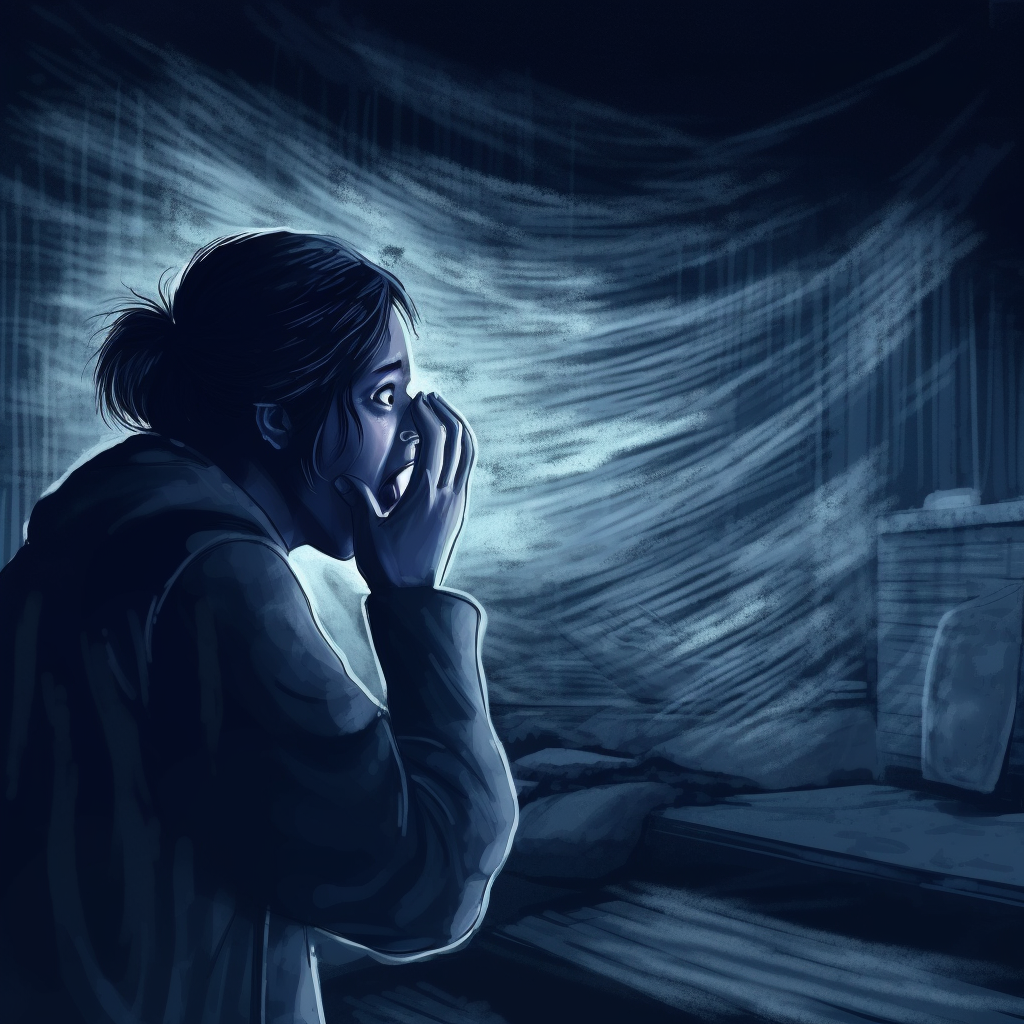Afraid
Definition
Afraid is an adjective used to describe a feeling of fear, anxiety, or worry about something perceived as threatening, unpleasant, or unknown.
Parts of Speech
- Adjective
Pronunciation
American English
- IPA Pronunciation: /əˈfreɪd/
- Respelling: uh-FRAYD
British English
- IPA Pronunciation: /əˈfreɪd/
- Respelling: uh-FRAYD
Etymology
The word "afraid" originates from the Old English phrase "āfǣran," meaning "to terrify." The term evolved in Middle English to describe a state of fear or anxiety and has maintained this meaning since the 14th century.
Derivatives
- Afraidness (noun)
- Unafraid (adjective)
- Fearful (adjective)
- Fearless (adjective)
- Overafraid (adjective)
Synonyms
- Fearful
- Scared
- Terrified
Antonyms
- Brave
- Fearless
- Confident
Usage
The term "afraid" is frequently used to express feelings of fear or apprehension, often about something specific. For instance, "She was afraid of the dark," or "I am afraid that we may not succeed."
Related Terms
- Fear: An unpleasant emotion caused by the threat of danger or harm.
- Anxiety: A feeling of worry, nervousness, or unease.
- Apprehension: Anxiety or fear that something bad or unpleasant will happen.
Detailed Definitions
Adjective
- Feeling fear or apprehension about something: Used to describe a person’s emotional state when they are worried or scared of a specific threat.
- Example: "She was afraid to speak in public."
- Worried that something undesirable might happen: Describes a concern about a potential negative outcome.
- Example: "I am afraid that it might rain on our picnic."
- Reluctant or unwilling due to fear or doubt: Indicates a hesitation or unwillingness stemming from worry or fear.
- Example: "He was afraid to make a mistake."
afraid



🇨🇳 Mandarin
- 害怕
- IPA: /xài pʰǎ/
- Respelling: hai pa
- 担心
- IPA: /dàn xīn/
- Respelling: dan xin
🇮🇳 Hindi
- डरा हुआ
- IPA: /ɖəɾaː hʊaː/
- Respelling: dara hua
- डर
- IPA: /ɖəɾ/
- Respelling: dar
🇪🇸 Spanish
- Asustado
- IPA: /asu'stado/
- Respelling: a-su-sta-do
- Temeroso
- IPA: /teme'roso/
- Respelling: te-me-ro-so
🇫🇷 French
- Effrayé
- IPA: /efʁeje/
- Respelling: ef-raye
- Craintif
- IPA: /krɛ̃tif/
- Respelling: krain-tif
🇦🇪 Modern Standard Arabic
- خائف
- IPA: /xaːʔif/
- Respelling: khaa'if
- واهم
- IPA: /waːhim/
- Respelling: waahim
🇧🇩 Bengali
- ভীত
- IPA: /bʱit/
- Respelling: bhīt
- ডারানো
- IPA: /ɖaraːno/
- Respelling: darano
🇷🇺 Russian
- Бояться
- IPA: /bɐˈjatsə/
- Respelling: bo-yat-sya
- Испуганный
- IPA: /ɪˈspukənːɨj/
- Respelling: is-pu-gan-nyj
🇵🇹 Portuguese
- Assustado
- IPA: /ɐsuʃ'tadu/
- Respelling: a-sush-ta-du
- Receoso
- IPA: /ʁe'sezu/
- Respelling: re-se-zu
🇮🇩 Indonesian
- Takut
- IPA: /taˈkut/
- Respelling: ta-kut
- Cemas
- IPA: /ʧəˈmas/
- Respelling: che-mas
🇩🇪 German
- Ängstlich
- IPA: /ˈɛŋstlɪç/
- Respelling: eng-stlich
- Befürchtend
- IPA: /bəˈfyʁçtənd/
- Respelling: be-furch-tend
🇯🇵 Japanese
- 怖がる
- IPA: /ko-wa-ga-ru/
- Respelling: kowagaru
- 恐れる
- IPA: /o-so-re-ru/
- Respelling: osoreru
🇻🇳 Vietnamese
- Sợ
- IPA: /sɔ˧˧/
- Respelling: so
- Lo sợ
- IPA: /lo sɔ˧˧/
- Respelling: lo so
🇰🇷 Korean
- 무서워하다
- IPA: /mu.sʌ.wʌ.ha.da/
- Respelling: mu-seo-weo-ha-da
- 겁나다
- IPA: /kʌp.na.da/
- Respelling: geop-na-da
🇹🇷 Turkish
- Korkmuş
- IPA: /kɔɾkmuʃ/
- Respelling: kork-mush
- Korkan
- IPA: /kɔɾˈkɑn/
- Respelling: kork-an
🇵🇰 Urdu
- ڈرا ہوا
- IPA: /ɖəɾaː huːaː/
- Respelling: dara hua
- خوفزدہ
- IPA: /xofzadaː/
- Respelling: khofzada





